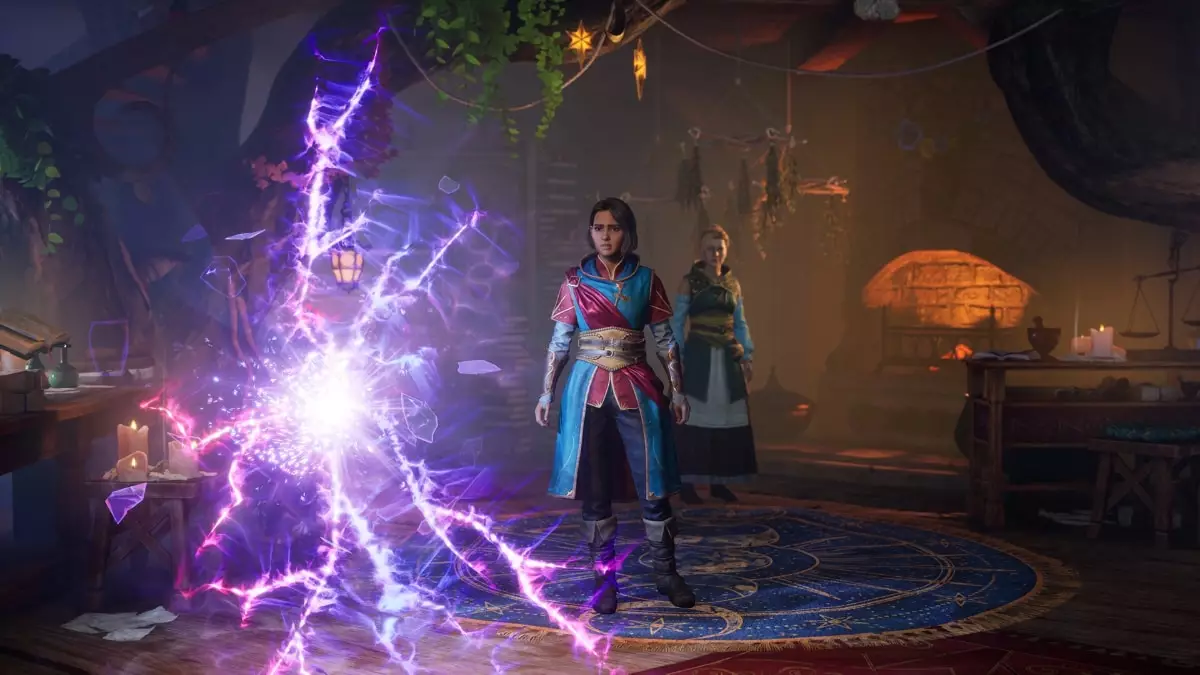In an unexpected move that has left many gamers guessing, Electronic Arts (EA) announced a groundbreaking feature for its upcoming title, *Split Fiction*, specifically designed to work with the new Nintendo Switch 2. This announcement highlights a feature called GameShare, which allows for an intriguing form of multiplayer gaming that echoes sentiments of nostalgia while teetering on a spectrum of confusion and frustration. On the one hand, it opens doors to cooperative gaming that have been largely ignored by the industry, but on the other, it ignites questions about practicality, connectivity, and exclusivity.
The most interesting aspect of the GameShare announcement is the allowance for original Nintendo Switch owners to play alongside their counterparts who upgraded to the Switch 2. By sharing a single copy of the game over local wireless connections, players can jump into the excitement of *Split Fiction* without both needing to lay down the cash for a pricey new console. On the surface, this appears to be a game-changer, unlocking the door to camaraderie among players regardless of their hardware investment. However, lurking beneath this shiny exterior are concerns regarding how this accessibility will actually function.
The Flawed Reality of Compatibility
While EA’s press release is tailored to sound like a utopia for gamers, it starkly contrasts with Nintendo’s own restrictions on the GameShare feature. Nintendo explicitly states that only games compatible with the original Switch systems can be shared with the newer console, complicating matters when it comes to cross-play. What is particularly perplexing is the announcement that *Split Fiction* is not set to launch on the original Switch, calling into question the true nature and extent of “compatibility.” How can a game that runs natively on the Switch 2 be fully enjoyed by a player on the original Switch? The marketing seems muddled at best and contradictory at worst.
EA’s messaging, while revolutionary in spirit, fails to clearly outline how players on the original Switch will engage with a game that is, in essence, built for the powerful capabilities of the Switch 2. Gamers are left to wonder: will their experience be significantly limited, or will they end up feeling like second-class citizens? The idea of inclusivity is eroded by the complications of whether or not gameplay will even be an option for those who have not upgraded.
A Promotion of Fragmentation?
The release of *Split Fiction* is emblematic of a broader trend within the gaming industry that seeks to cater to both new and loyal consumers, yet it runs the risk of fostering fragmentation. Allowing for features like Friend’s Pass and cross-play is commendable; why not promote a unified gaming experience? Instead, we find ourselves facing the risk of an unintuitive experience where compatibility divides players instead of uniting them.
EA’s decision to allow online multiplayer experiences through Friend’s Pass only solidifies the assumption that they are leaning into a more casual gaming environment, amidst a gaming landscape that often prizes hardcore competition and experience. However, this is not a one-size-fits-all solution and doesn’t address the core issue of fair play and game enjoyment across platforms. Gamers deserve a holistic interactive experience regardless of their hardware investment; after all, isn’t that part of what gaming is all about?
The Price of Innovation
As *Split Fiction* gears up for its June 5 launch, it comes with a price tag of $49.99 and the potential for a roller coaster experience—both thrilling and disappointing. EA has adopted a pricing strategy that suggests they are confident in the game’s ability to capture the market, but will players feel the same enthusiasm once they encounter the pitfalls of the GameShare system? Can a brilliant innovation masked with inherent contradictions and flaws cause more damage than good?
The upcoming release echoes the challenges of innovating while catering to a diverse fanbase. The GameShare feature holds the promise of connection with friends and family, but the underlying complexities raise flags and doubt. For many, the potential drama and confusion that could stem from this dual-console gaming could lead to a splintered gaming community rather than the unity that Nintendo and EA hope to achieve. After all, if gaming is meant to evoke joy and connection, should it not strive to simplify rather than complicate?



Leave a Reply